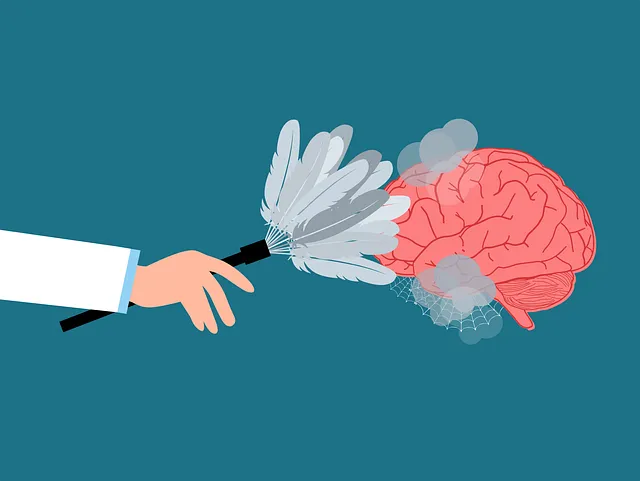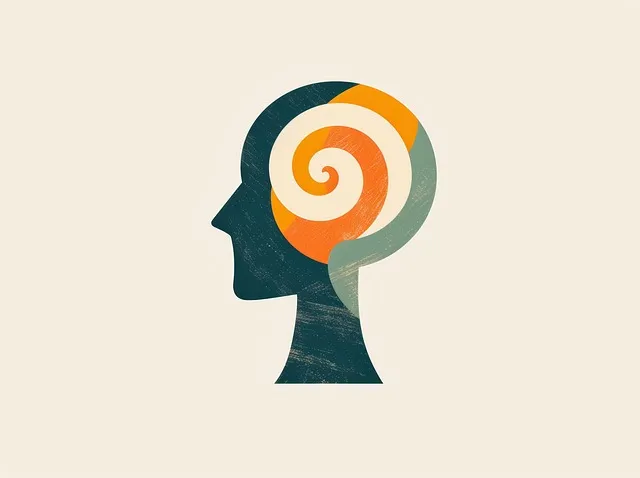In today's fast-paced world, prioritizing mental wellness is crucial for overall well-being. Superior Kaiser Permanente mental health center reviews highlight the success of integrated care models, including mental wellness coaching programs that offer anxiety relief, build resilience, and provide practical communication strategies. Evaluating existing resources at these centers is vital for developing effective coaching programs tailored to professionals' unique needs. Balancing evidence-based practices with client-centered approaches ensures relevant, accessible, and beneficial interventions. Strategic planning, dedicated spaces, accessibility, confidentiality, and training healthcare professionals to refer patients seamlessly are key to successful implementation. Continuous improvement, based on data-driven evaluation and client feedback, aligns with best practices and enhances mental health outcomes for empowered patients.
In today’s fast-paced world, prioritizing mental wellness is more crucial than ever. This article explores the development of Mental Wellness Coaching Programs (MWCPs), focusing on strategies for healthcare integration and improvement. We delve into the growing need for these programs, evaluating existing resources with a lens on Superior Kaiser Permanente mental health center reviews to inform best practices. By examining effective coaching models and evaluation techniques, we aim to guide organizations in enhancing their support systems for better overall well-being.
- Understanding the Need for Mental Wellness Coaching Programs
- Evaluating Existing Resources: A Kaiser Permanente Mental Health Center Review
- Designing Effective Mental Wellness Coaching Models
- Integration and Implementation Strategies in Healthcare Settings
- Measuring Success: Evaluation and Continuous Improvement Techniques
Understanding the Need for Mental Wellness Coaching Programs

In today’s fast-paced world, mental wellness is a cornerstone of overall health and well-being, making it imperative to prioritize and support individuals in managing their mental health effectively. This need has been increasingly recognized, leading to a growing demand for accessible and tailored solutions like mental wellness coaching programs. The traditional model of relying solely on therapy or medication often falls short in addressing the nuanced needs of diverse populations, prompting a shift towards innovative approaches.
One prominent example of this evolution is highlighted by superior Kaiser Permanente mental health center reviews, which underscore the effectiveness of integrated care models. By incorporating mental wellness coaching into primary healthcare settings, these centers empower individuals to take charge of their mental health journey. This approach not only provides anxiety relief but also fosters resilience and equips individuals with practical communication strategies to navigate their daily lives. Such programs are particularly crucial in identifying early signs of mental health issues through comprehensive risk assessments for mental health professionals, thereby enabling timely interventions.
Evaluating Existing Resources: A Kaiser Permanente Mental Health Center Review

A thorough evaluation of existing resources is a critical step in developing effective mental wellness coaching programs, especially within renowned institutions like the Superior Kaiser Permanente mental health center. Reviews of such centers offer valuable insights into the current landscape of mental healthcare support for professionals. By analyzing the offerings and feedback from previous users, one can identify gaps and opportunities to enhance these programs.
For instance, a review might reveal that while the Kaiser Permanente center provides comprehensive resources for stress management and burnout prevention strategies for healthcare providers, there is room for improvement in empathy-building techniques. Understanding such insights allows for tailored interventions, ensuring that coaching programs cater to the unique needs of mental health professionals, ultimately fostering a more supportive and resilient work environment.
Designing Effective Mental Wellness Coaching Models

In designing effective mental wellness coaching models, it’s crucial to balance evidence-based practices with client-centered approaches. A superior Kaiser Permanente mental health center review often highlights the importance of tailoring interventions to meet individual needs. Coaches should incorporate resilience building techniques, as these empower individuals to navigate life’s challenges more effectively. By assessing risks specific to mental health professionals and integrating social skills training, coaching programs can enhance both personal and professional well-being.
Additionally, leveraging data from Kaiser Permanente mental health center reviews allows for continuous improvement in coaching models. This involves regularly reviewing program outcomes, client feedback, and best practices from the field. Such an iterative process ensures that coaching remains relevant, accessible, and beneficial, fostering a supportive environment where individuals can thrive and achieve their mental wellness goals.
Integration and Implementation Strategies in Healthcare Settings

In healthcare settings like the renowned Superior Kaiser Permanente mental health center, integrating and implementing mental wellness coaching programs requires a strategic approach. These programs aim to augment traditional therapy models by offering personalized guidance focused on mood management, resilience building, and self-care practices. Through collaborative partnerships between coaches and patients, these initiatives can enhance overall well-being and satisfaction with care, as evidenced in positive Kaiser Permanente mental health center reviews.
Effective integration involves creating dedicated spaces for coaching within existing healthcare infrastructure, ensuring accessibility and confidentiality. Healthcare professionals can be trained to recognize when a patient could benefit from a coach, fostering seamless referrals. By aligning coaching goals with treatment plans, patients are supported both therapeutically and in their personal growth journeys. This holistic approach not only improves mental health outcomes but also cultivates a more empowered and engaged patient population.
Measuring Success: Evaluation and Continuous Improvement Techniques

Measuring success is a critical component of any effective mental wellness coaching program, especially when considering the intricate nature of mental health. At Kaiser Permanente’s mental health centers, reviews consistently highlight the importance of evaluation and continuous improvement techniques. This involves utilizing robust data-driven methods to assess the impact and effectiveness of coaching interventions. By implementing regular feedback loops from clients and practitioners, the programs can identify areas for enhancement and ensure they align with best practices in the field.
For instance, compassion cultivation practices have shown promise in improving both provider well-being and patient outcomes. Similarly, Mind Over Matter principles can equip individuals with valuable coping mechanisms, fostering resilience and adaptability. Additionally, integrating burnout prevention strategies for healthcare providers is paramount, as these initiatives contribute to a healthier work environment and improved service delivery. Such approaches not only benefit the coaches but also enhance the overall quality of care provided within Kaiser Permanente’s mental health centers, according to superior reviews.
Mental wellness coaching programs are evolving to meet the growing demand for accessible, personalized support. As evidenced by superior Kaiser Permanente mental health center reviews, integrating these initiatives within healthcare settings can significantly enhance patient outcomes and overall well-being. By evaluating existing resources, designing evidence-based models, and implementing strategic integration, healthcare providers can empower individuals to navigate their mental health journeys effectively. Continuous improvement techniques, grounded in rigorous evaluation, ensure that these programs remain dynamic and responsive to the evolving needs of diverse populations.






